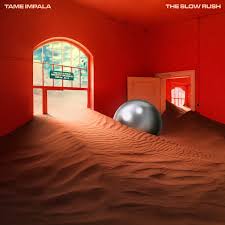RUFUS WAINWRIGHT - All Days Are Nights: Songs For Lulu
 Wednesday, March 31, 2010 at 10:00AM
Wednesday, March 31, 2010 at 10:00AM  Rufus Wainwright's self-titled debut in 1998 was a sudden rush of talent that floored both old-school music industry vets (Van Dyke Parks and Lenny Waronker) and emerging underground icons (Jim O'Rourke) alike. It was a complex, mature and uncommercial debut that—thanks to his envious pedigree and self-possessed confidence—was amazingly allowed to exist on its own esoteric terms.
Rufus Wainwright's self-titled debut in 1998 was a sudden rush of talent that floored both old-school music industry vets (Van Dyke Parks and Lenny Waronker) and emerging underground icons (Jim O'Rourke) alike. It was a complex, mature and uncommercial debut that—thanks to his envious pedigree and self-possessed confidence—was amazingly allowed to exist on its own esoteric terms.
Since then, however, Wainwright has often seemed stretched by his own ambition to be everything his heart desires. His back catalogue is extremely strong, but it is also defined mainly by its excesses and the wild extremities of its scope. Massive orchestras, two-part albums, full stage recreations of Judy Garland's cult Carnegie Hall performance—when someone of Wainwright's decadent tastes is allowed such indulgences, you'd be a fool to trust him to say "no".
Why point all this out? After years of excess, the man has finally used, as he calls it, "his ace in the hole"—a record of just piano and voice. It's not so much that All Days Are Nights: Songs For Lulu makes his back catalogue look bad, but if nothing else, it validates the virtues of restraint. And frankly, it is the best record Wainwright has done in years.
Like some homeopathic cleanse, it is a return to the purest state of this man's talent. Aside from the two-minute swagger of "Give Me What I Want and Give It To Me Now", the mood is decidedly introspective, centering on broken love, relationships, and most significantly, the recent death of his beloved mother, folk icon Kate McGarrigle. And though haunted, both he and the listener emerge from the album renewed and full of tender affection. If his last original album, 2007's Release the Stars, was some triple-whipped, caramel-topped, double-cream mochaccino, All Days Are Nights is a lone cup of espresso: strong, pure, classic, and damn near perfect.
 Pop/Rock
Pop/Rock 

Reader Comments